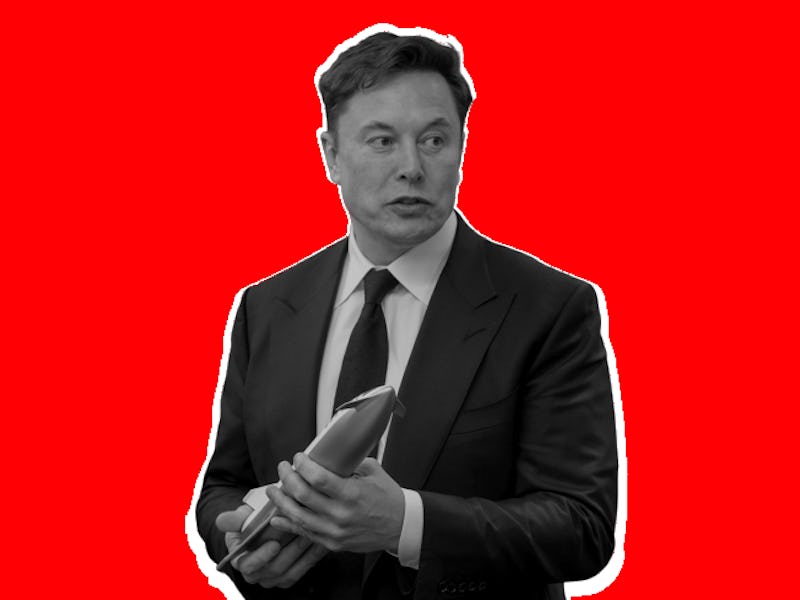Elon Musk Warns Jack Ma About Super-Intelligent A.I.: 'Famous Last Words'
The pair clash over the future of humanity.

Is super-smart A.I. going to overtake humans? It’s possible, according to Elon Musk.
The tech entrepreneur behind SpaceX and Tesla debated Jack Ma, co-founder of the Alibaba Group and estimated to be China’s richest man, during an on-stage debate with Ma at the World Artificial Intelligence Conference in Shanghai on Thursday.
Ma, praising the benefits of A.I., aimed to highlight how it could improve people’s lives. He declared himself “quite optimistic” and said that “I don’t think artificial intelligence is a threat.”
"I don’t know, man, that’s like, ‘famous last words.’"
“People [that] worry a lot about this today are those people [that I call] ‘college smartness’,” Ma said. “People like us, ‘street smart,’ we’re never scared of that! We think it’s great fun, and we want to change ourselves to embrace it.”
“I don’t know, man, that’s like, ‘famous last words,’” Musk said.
The debate cut to the core of one of the big divides about the future of A.I., in particular around artificial general intelligence. Musk argues that AGI, a hypothetical future system that could learn the same tasks as a human and possibly surpass human capabilities, is closer than many expect. Ma argues that there’s a clear divide between humans and machines and humanity won’t create something that represents itself.
Elon Musk and Jack Ma: The Rise of A.I.
Musk has long called for greater scrutiny around the rise of artificial intelligence. He has called for greater regulatory oversight before the field advances too far. He is not anti-A.I., however: his electric car firm Tesla is aiming to use machine learning to power autonomous cars, and he co-founded A.I. firm OpenAI in 2016. OpenAI, which Musk is no longer involved with, has developed a new language model and beaten humans at the Dota 2 video game.
His warnings about the future of A.I. have been met with mixed reception in the broader sphere. After Musk told state leaders at the National Governors Association in 2017 that A.I. is “a fundamental risk to the existence of human civilization,” researcher Pedro Domingos at the University of Washington responded with one word: “sigh.”
His brain-computer linkup firm Neuralink, which announced last month plans to wire up the first human brains potentially by the end of this year, is aimed at creating a symbiotic relationship between the two. On Thursday, he said that “human speech to a computer will sound like very slow tonal wheezing…kind of like whale sounds.” A brain link could ensure humans don’t get left behind.
Neuralink's N1 chip array in action.
Ma disagreed that there is such a pressing need. Describing himself as “not a tech guy,” he said that “A.I. is going to open up a new chapter of society.” He also noted that “99 percent of the predictions human beings have had in history about the future…all wrong.”
“Including that one?” Musk retorted.
Musk later explained that he was so sure about his prediction due to the breakneck pace of change in civilization. He noted how over the past 7,000 years of civilization humanity had made incredible strides, and even over the past 50 years video games had moved form Pong to hyper-realistic worlds. Musk also suggested that this gave greater weight to the simulation theory.
Although the pair agreed on some of the issues facing humanity — the global population is expected to decline after 2100, creating a major demographics issue — they disagreed over finer points, like whether a city on Mars is a good idea and whether A.I. will simply liberate humans from work instead of enslaving them.
“Man can never make another man,” Ma said. “Computer is a computer, the computer is just a toy. Man cannot even make a mosquito…computers only have chips. Men have the heart. It’s the heart where the wisdom comes from.”
If Musk is correct, it could be famous last words indeed.